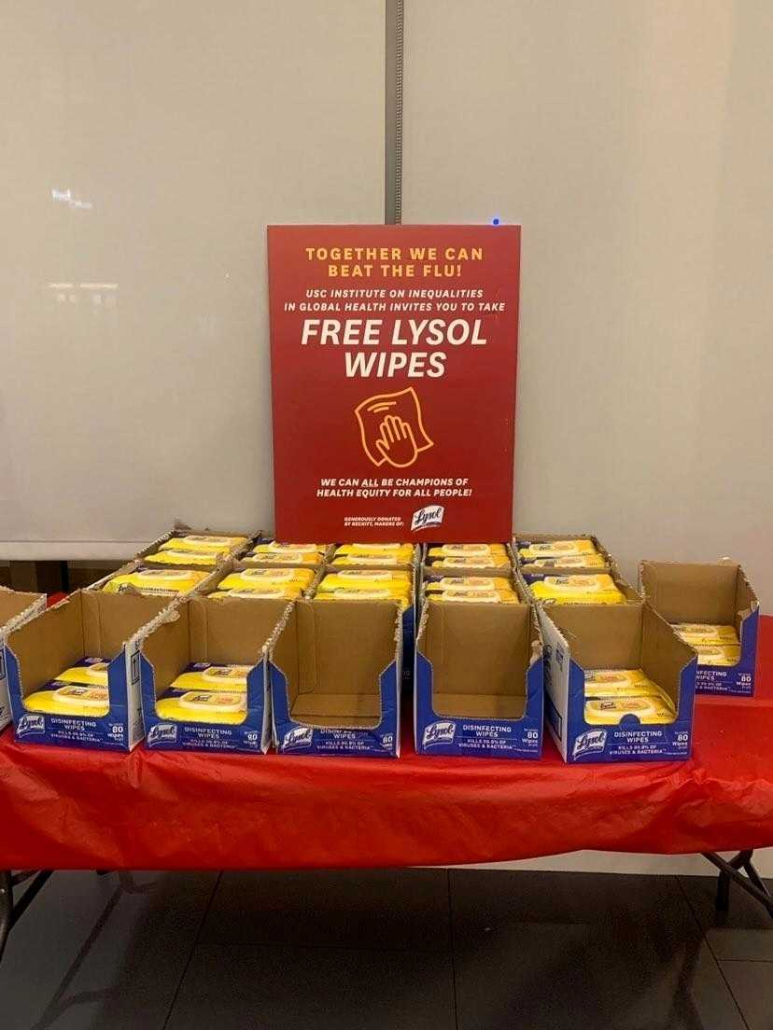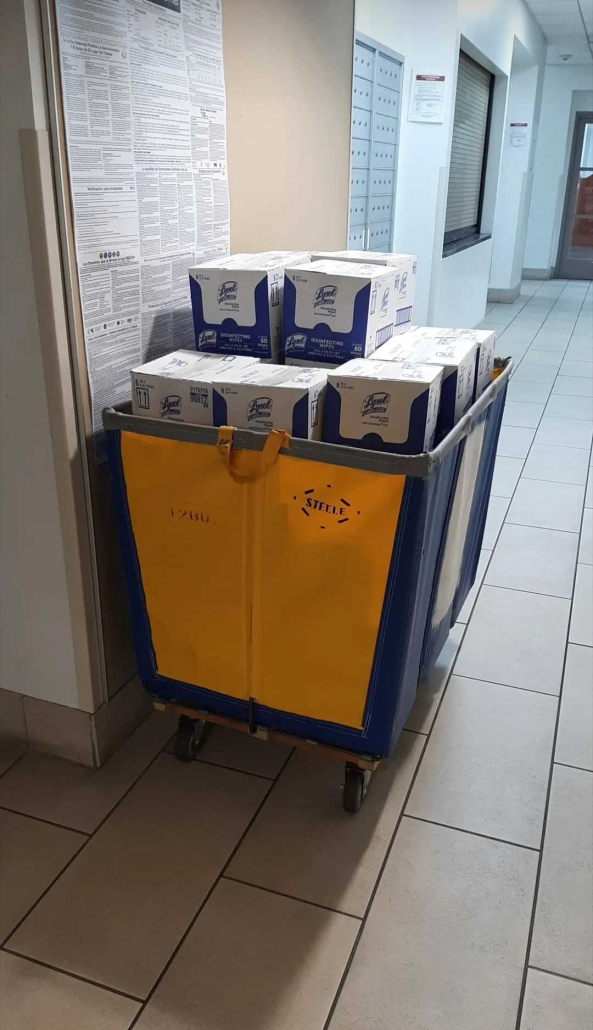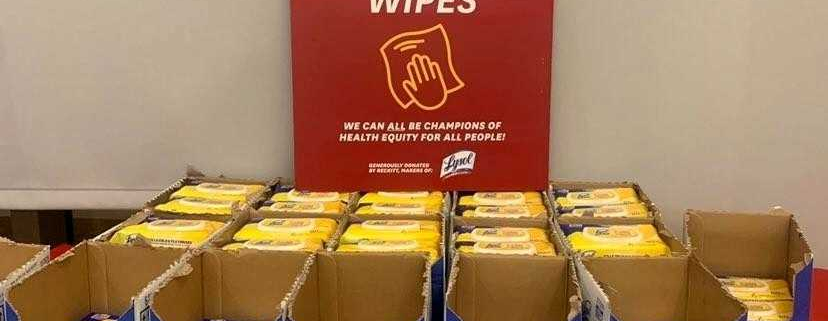Campaign distributes Lysol wipes

At the end of February, USC began distributing packs of Lysol wipes in piles across campus with little indication to students where they were from. Many were mystified by the stacks of Lysol wipes that appeared in dorm buildings, in customer service centers and at the Trojan Farmer’s Market.
Lydia Acevedo, a sophomore majoring in cinema and media studies, described coming into the foyer of their dorm building in the USC Village and seeing stacks of around 200 Lysol wipes. Similarly, Linda Gist, a student worker at New North Residential College, said she was told that there was an “influx of Lysol wipes” that students could pick up, but wasn’t given information beyond that.
The distribution of the free Lysol wipes was part of a larger campaign between the USC Institute on Inequalities in Global Health and Reckitt, the manufacturer of Lysol, to aid the local community and raise awareness around vaccine inequity.
“The on-campus product distribution was a one-time collaboration between the USC Institute on Inequalities in Global Health and Reckitt, and is unrelated to the university’s COVID-19 prevention programs, health services and policies,” the University wrote in an emailed statement to the Daily Trojan.
In early February, Reckitt announced it was going to donate 4 million packs of Lysol wipes to USC IIGH in partnership with Operation USA, Los Angeles Food Bank and Shelter Partnership to distribute to 16 community organizations across L.A.
Director of USC IIGH Sofia Gruskin, a professor of population of public health sciences and law, said that recipient organizations were chosen based on the strength of USC’s relationship with them and where there was the greatest need for the products.
“One of the things that has been really important in terms of engaging with Reckitt has been to be able to … get access to, in this case, Lysol products that can then be made available to our community-based organizations that we work with,” Gruskin said. “We also wanted to bring some of that back to USC to our own students and faculty and staff.”
The packs of Lysol wipes were widely available to USC students and staff, stacked in foyers of dorm buildings, in piles of boxes at the Trojan Farmer’s Market, and available even at some campus entrances. Students in residence halls such as Pardee Tower, Marks Tower and Birnkrant Residential College, received emails that USC Housing staff members would go into their rooms and leave the Lysol wipes on their desks.

Nancy Shao, a freshman majoring in biomedical engineering, said that she doesn’t actually intend to use the Lysol wipes, but that the initiative is helpful because he can donate the wipes to the South Hill Community Fridge.
“It is pretty convenient because it’s less things that I have to buy at the store,” said Lindsey Thomas, a freshman majoring in biology.
However, the primary goal of this campaign wasn’t to distribute the Lysol wipes, but instead to encourage vaccine and booster education, Gruskin said.
“It’s not actually about products at all. It’s actually, absolutely, purely in the context of vaccine equity and the work that we do around that,” Gruskin said.
To achieve this, IIGH is working with local artists and community groups to design a public mural based on the mission of education, Gruskin said. The organization is still deliberating the most appropriate and effective location for the site of the mural, and said that the unveiling will likely take place in early April.
“The institute sees Los Angeles as part of the globe, and so we’re concerned with addressing inequalities in L.A. as much as we are concerned with addressing inequalities in other places,” Gruskin said.
Though IIGH has many community relations, to advance their mission, this campaign is the first time the institute has partnered with a corporation rather than with community organizations, Gruskin said.
“One of the things that I think COVID has taught me, at least, is the need to extend beyond our regular partners,” Gruskin said. “We’re really trying to work with new partners, and I’m really pleased because it seems Reckitt feels like a really honorable partner.”
Throughout the pandemic, Reckitt has made similar donations of Lysol products to Title I schools across the country. On its website, the company states its goal “to make access to the highest quality hygiene, wellness and nourishment a right and not a privilege.”
Gruskin said she hopes students can get behind IIGH’s goal of working together to address vaccine inequity and encourages students to engage with the institute by joining their mailing list and attending their events.
“We are very committed to engaging with student organizations and to student groups and are looking to the Student Advisory Council to help us to engage with organizations,” Gruskin said.

